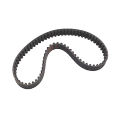Financing all Credit Types - 
Financing all Credit Types - 
Financing all Credit Types - 
Financing all Credit Types - 
Taking care of your vehicle's brakes is crucial for your safety on the road. One important aspect of brake maintenance is what we call "brake bleeding." This process is all about getting rid of any air that might have sneaked into your brake lines, making sure your brakes work consistently and reliably.
Air can find its way into your brake system in different ways, like during brake maintenance, if there's a leak in the system, or when worn brake pads cause the brake fluid level to drop. When there's air in your brake lines, you might notice a spongy or soft brake pedal, along with longer stopping distances, which can put your safety at risk.
To keep everything in top shape, it's recommended to do brake bleeding every 2-3 years as a precautionary measure or whenever you start feeling that spongy brake sensation. This process involves using a brake bleeding kit and a vacuum pump to remove the old, possibly contaminated brake fluid and replace it with fresh fluid. By doing this, you ensure that your brake system is working as it should, keeping you safe on the road.
The braking system in your vehicle uses fluid to transfer the pressure from the brake pedal to the brake pads. However, air can get into this system over time, which can lead to issues. Some common signs that your brakes may need bleeding include:
Spongy or Soft Brake Pedal: When you press the brake pedal and it feels soft or spongy, it's like stepping on a cushion instead of a solid brake. This feeling could mean that air has made its way into your brake system.
Longer Pedal Travel: When you find yourself having to press the brake pedal farther than usual before your brakes kick in, it's like your brakes are asking for a bit more effort to do their job. This can be a sign that your brake system might need bleeding.
Pumping the Pedal: When you have to pump the brake pedal to get your brakes to respond properly, it's like giving them a little extra nudge to do what they're supposed to do. This is a clear sign that your brake system needs some attention and may need bleeding to function effectively.
Longer Stopping Distances: If you notice that your vehicle is taking longer to come to a stop than it usually does, it's like your brakes are taking a bit longer to do their job. This could be because there's less pressure in the brake system, possibly due to air being present.
Taking quick action to have your brakes bled is crucial for keeping your vehicle's braking system safe and performing at its best.
Brake bleeding is like giving your car's braking system a breath of fresh air by removing any unwanted air bubbles from the brake lines. This process makes sure that only brake fluid, which is essential for proper braking, is in the system. The aim is to make your brake pedal feel firm again and ensure that your brakes work consistently every time you need them.
Neglecting to flush your brake fluid can cause several issues because the older fluid loses its effectiveness. As time passes, brake fluid breaks down and starts absorbing moisture, making it less resistant to high temperatures. This can result in diminished braking power, particularly during intense braking situations. Moreover, it may lead to internal rusting in crucial parts like brake lines, calipers, the master cylinder, and other key components.
A brake flush is like giving your car's brake system a fresh start by replacing all the old brake fluid with brand new fluid. This helps tackle problems like contamination and moisture buildup that can affect how well your brakes work. On the flip side, a brake bleed is all about getting rid of any pesky air bubbles that might have sneaked into the brake lines. This ensures your brake pedal feels solid and your brakes perform at their best when you need them most. Both of these procedures are super important for keeping your vehicle safe and making sure your brakes work efficiently. So, think of a flush as a quality boost for your brake fluid and a bleed as a way to kick out any air that could mess with your braking performance.
Keeping your brakes in top condition through regular maintenance, such as periodic bleeding and fluid flushes, is crucial for safe driving. It's important to recognize the signs of air in the brake lines and the significance of clean brake fluid to ensure your braking system functions properly. If you're unsure about the condition of your brakes, it's best to seek advice from a skilled mechanic who can assess and maintain them appropriately. Remember, the health of your brakes is non-negotiable—it's not just about your safety but also the safety of everyone on the road.





















